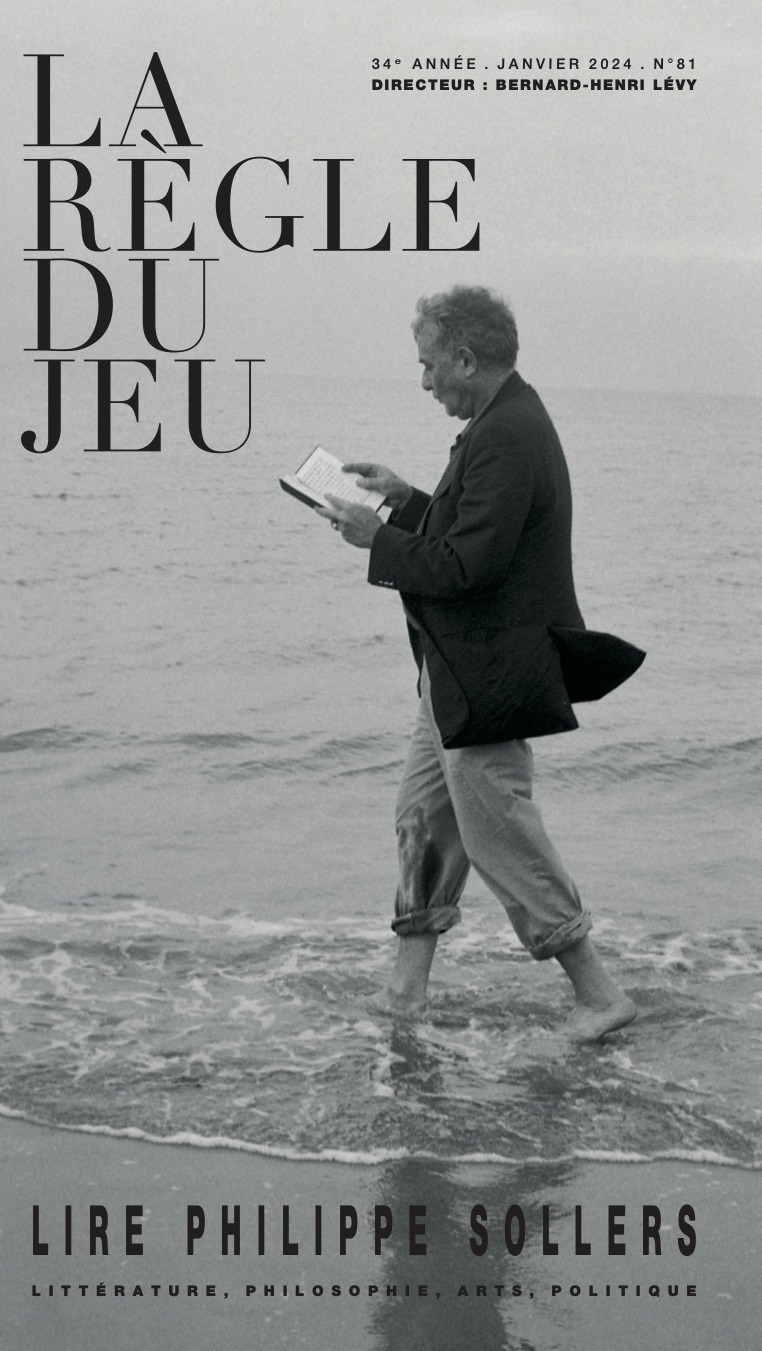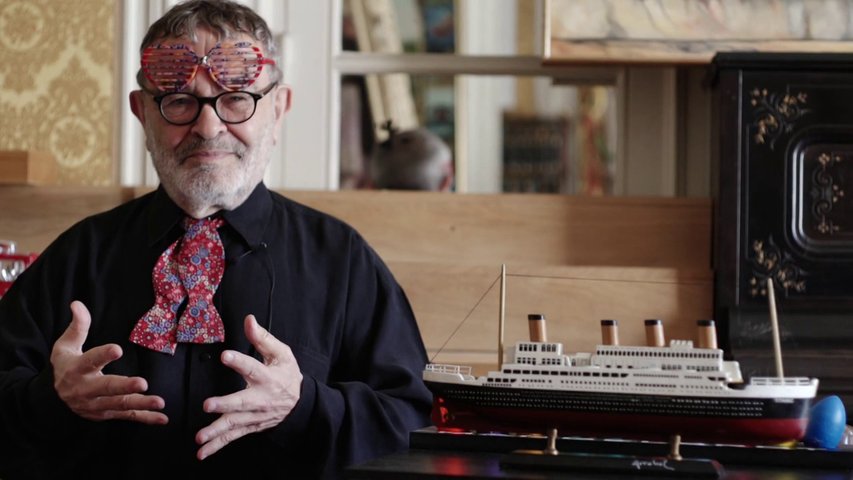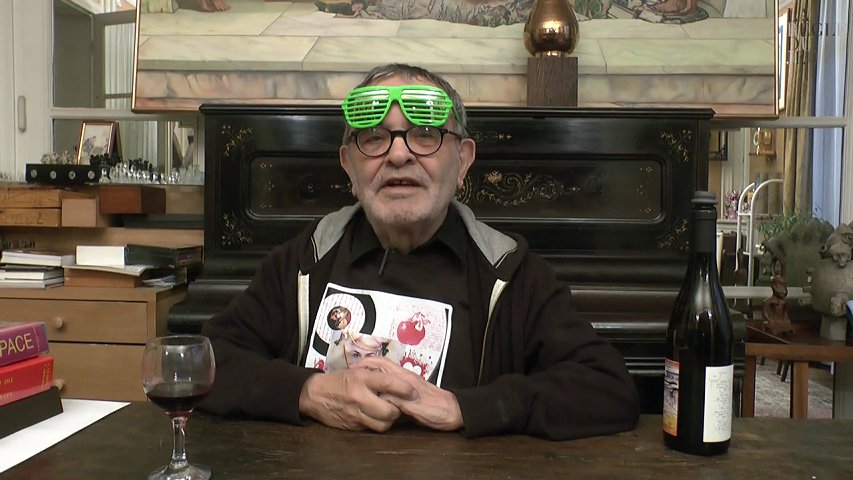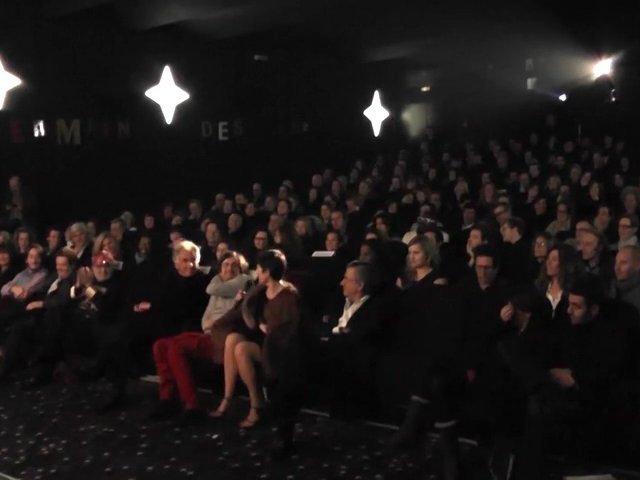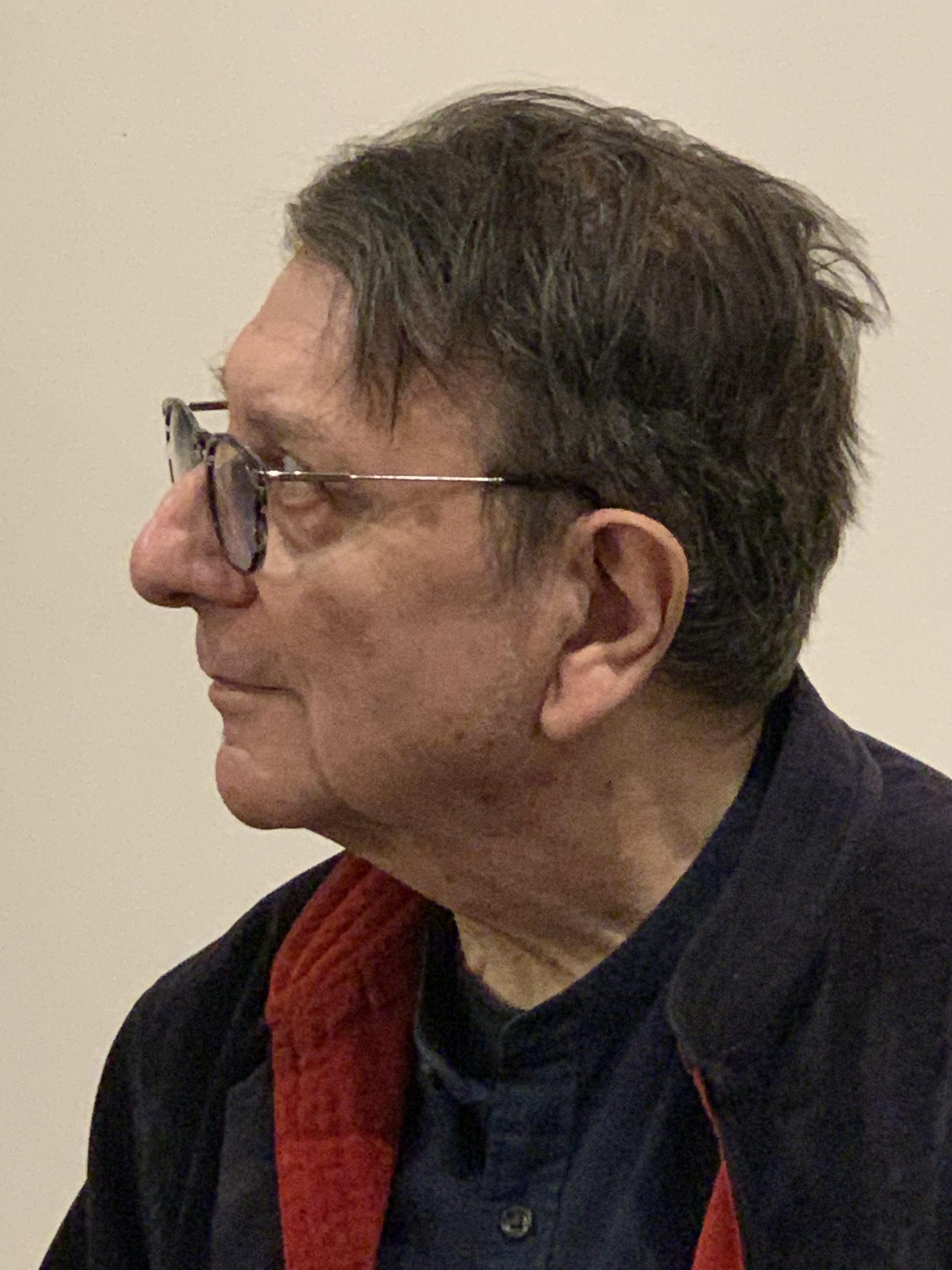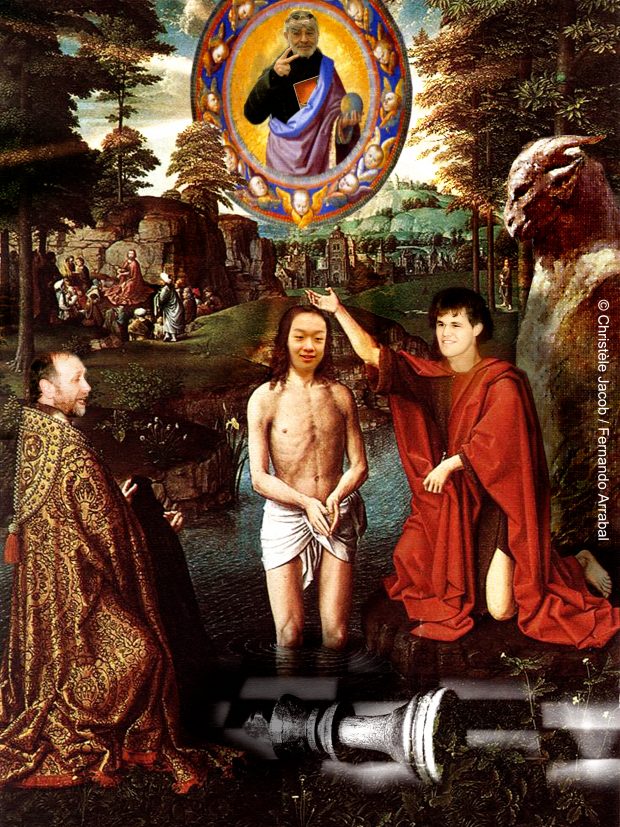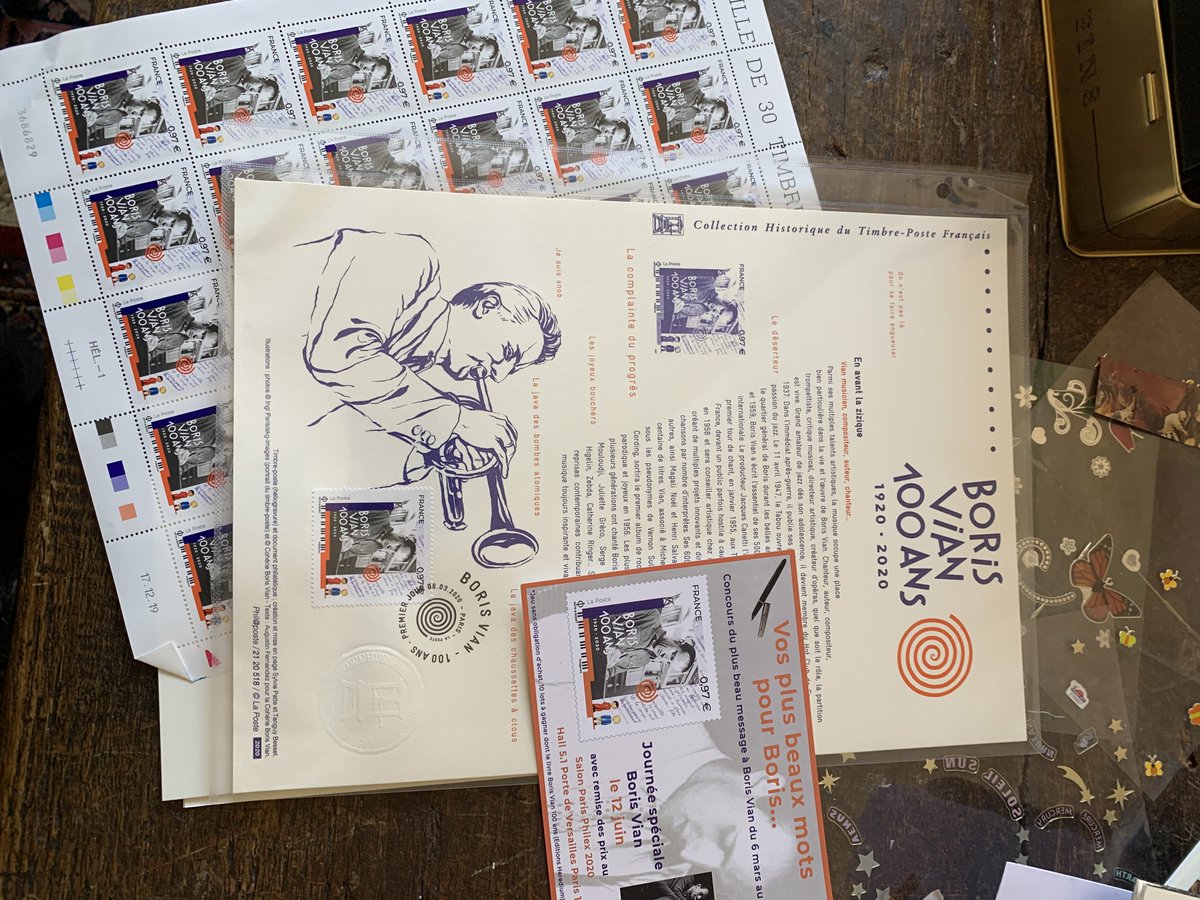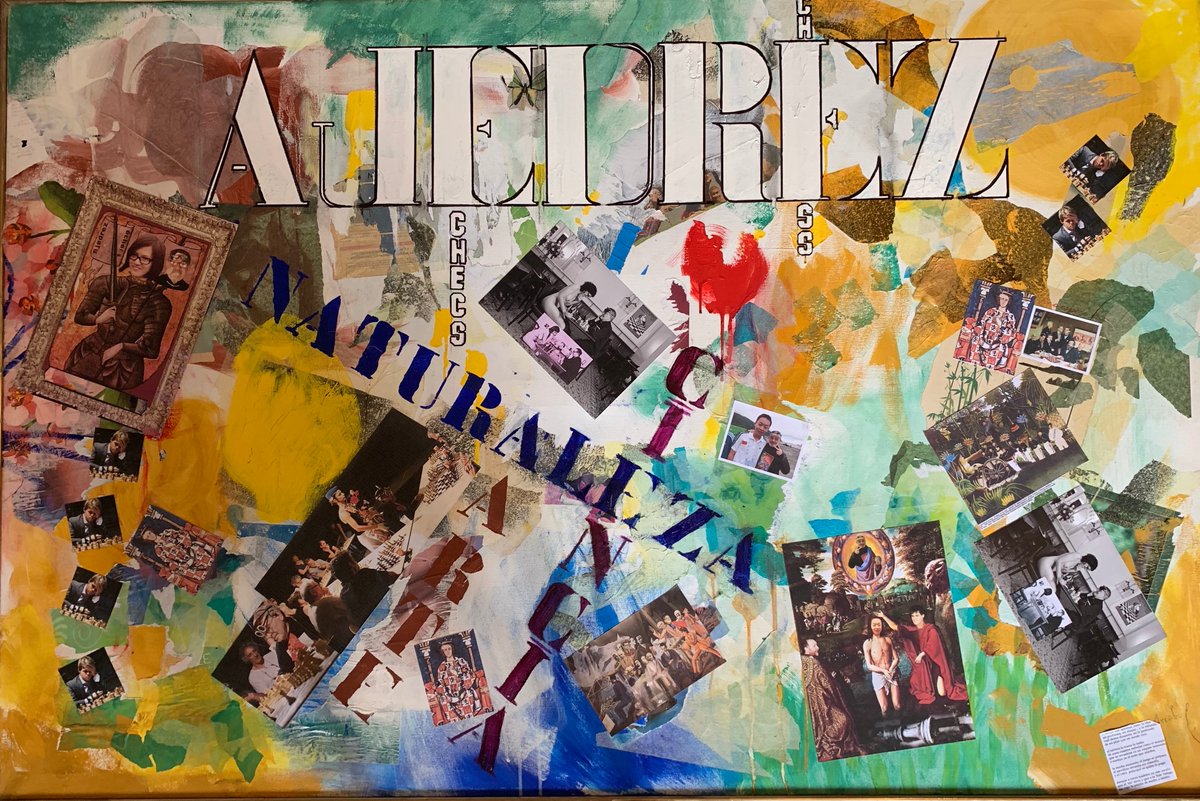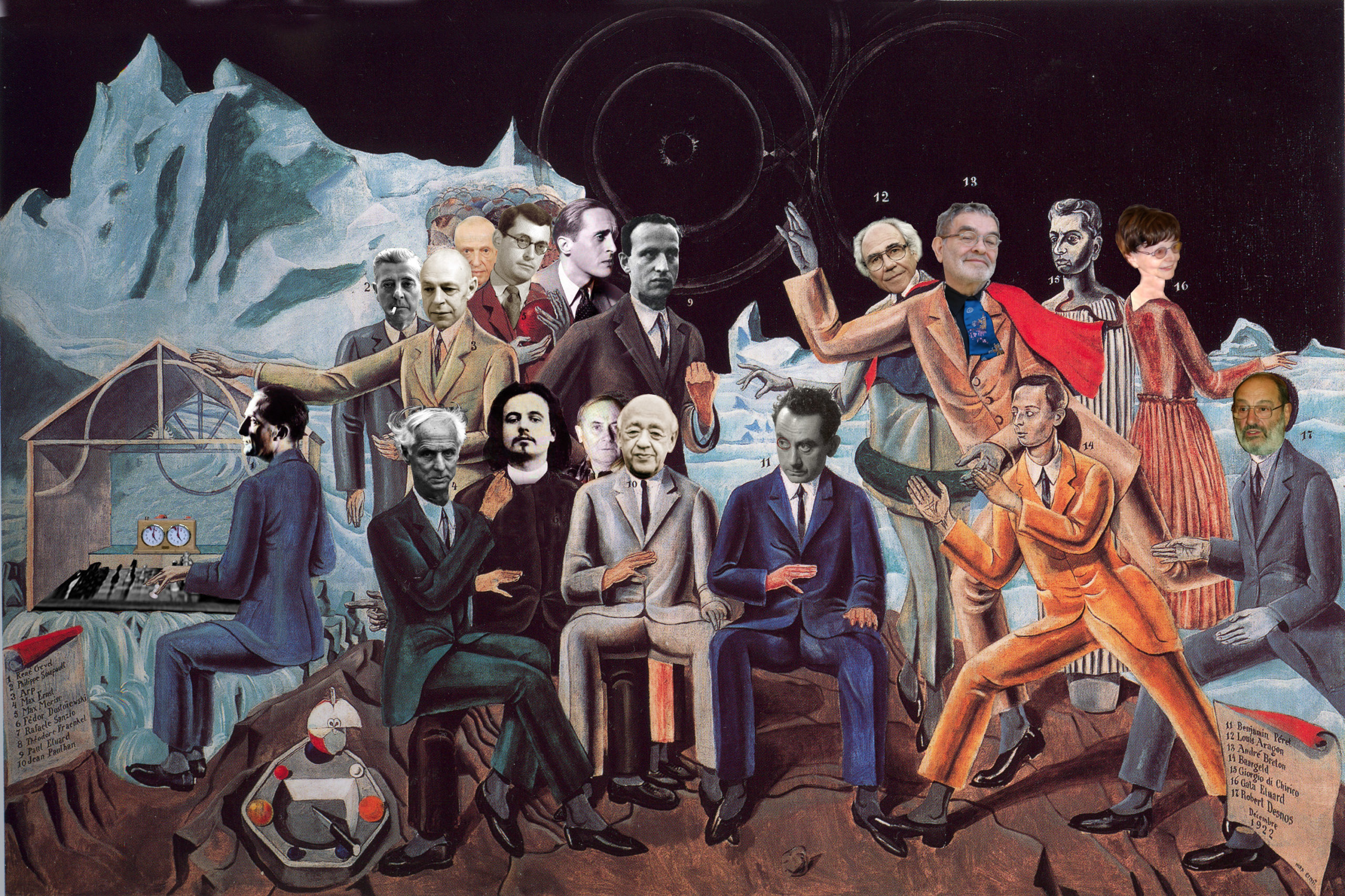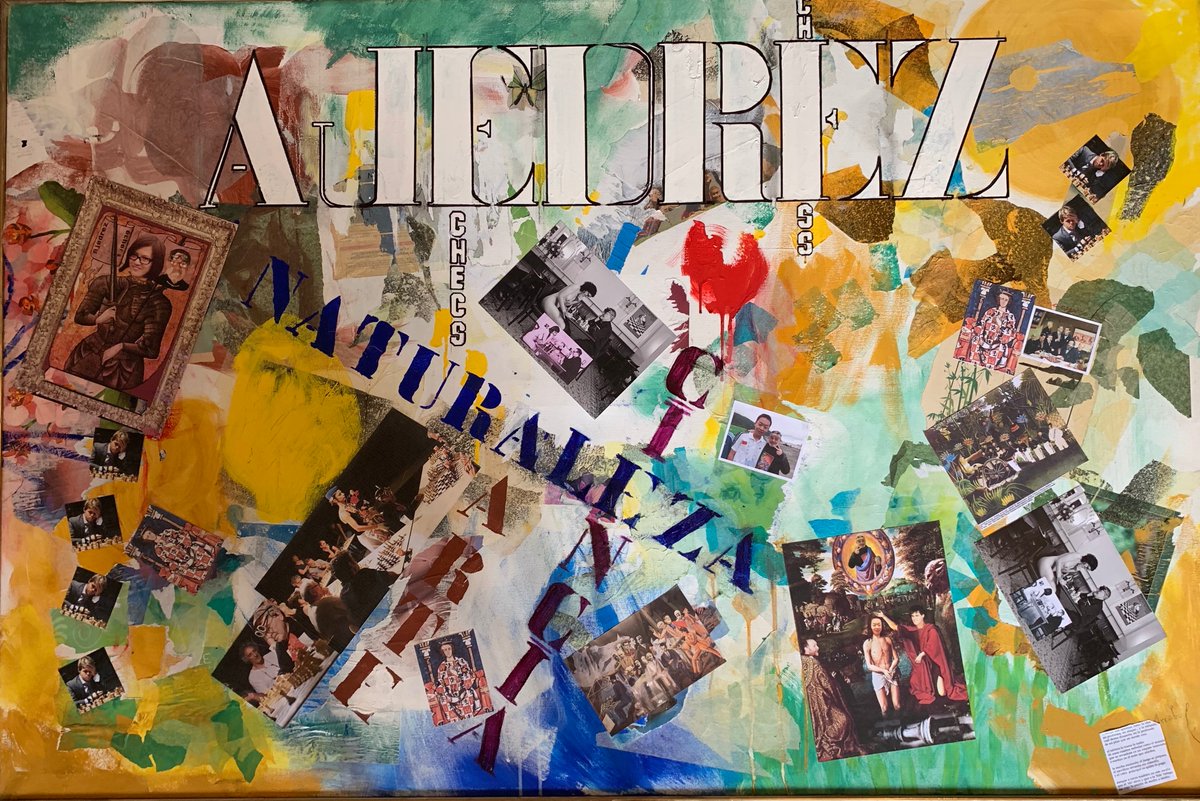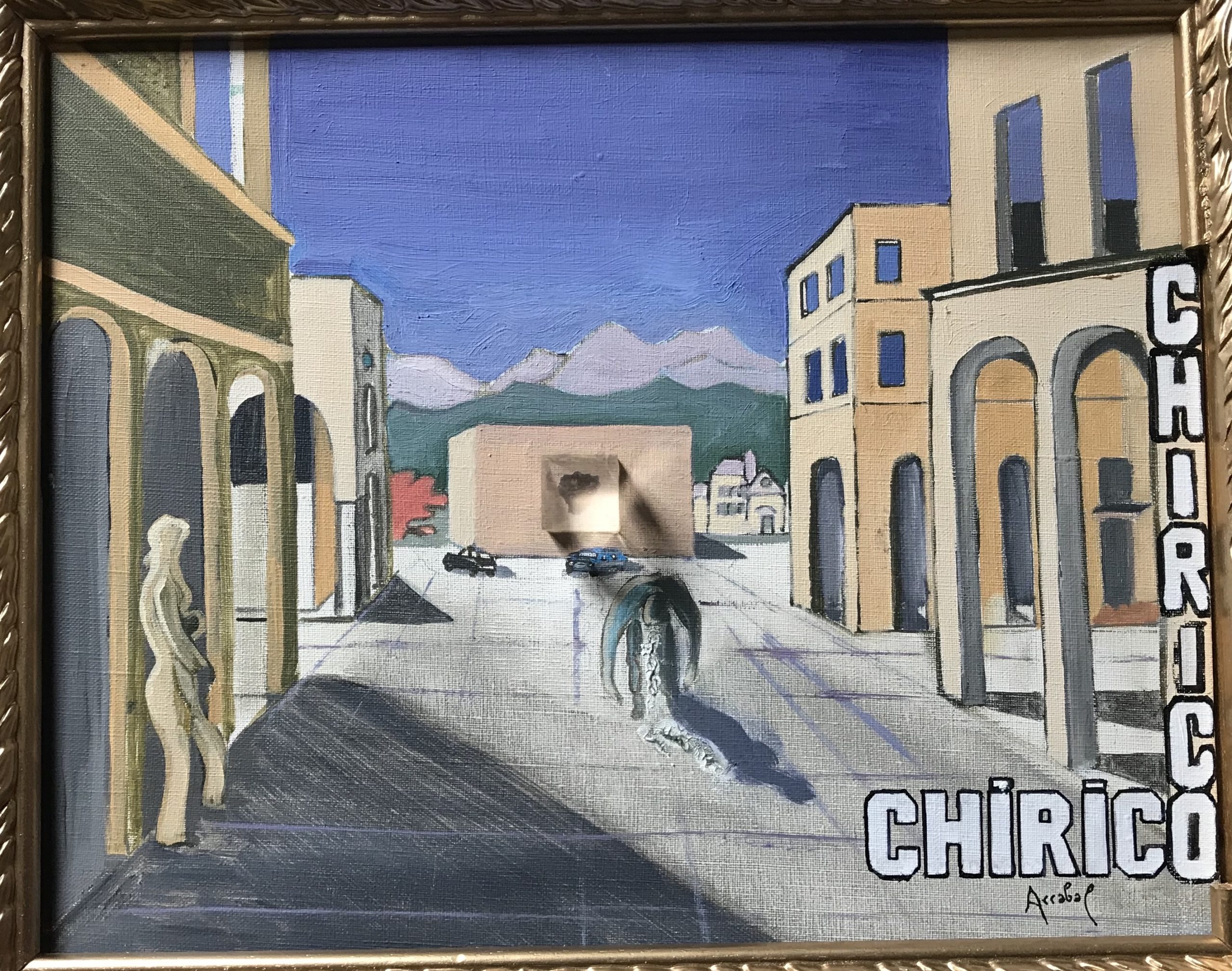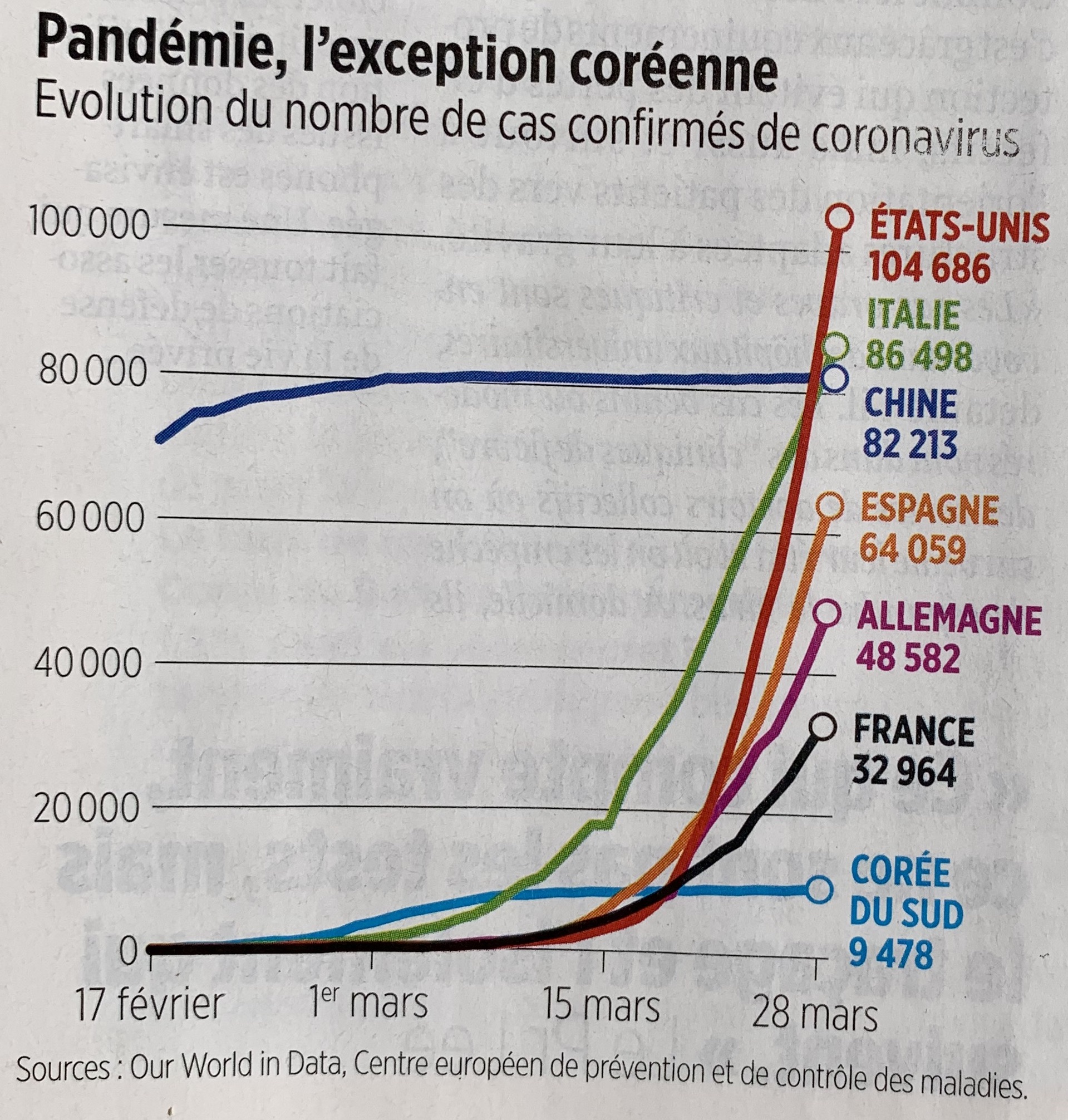The Plaxall: “The Garden of Delights” by Fernando Arrabal (directed by Maria Swisher).
Since July the 29th of this year, the New York scene brings up the unexpected offer in English of the play “The Garden of Delights” written by Fernando Arrabal, this time directed by Maria Swisher.
At the Plaxall Theatre’s, on Friday evening, the audience who attended the Premiere seemed to be shocked by “that unique theatrical experience”. A game based upon the relationships “between a woman with a woman, precisely today and now”
And yet the play was written half a century ago, during the stay of Fernando Arrabal in the Madrid Prison of Carabanchel. “The Garden of Delights” explores the practice of love through the fantastic journey, Jerome Bosch – look-alike, of its two protagonists.
In the play, we attend the paradisiacal and infernal games of the two protagonists. With the fantasy of the poetically phenomenal. The work finds inspiration in Bosch’s triptych. In spite of having been represented often internationally it was not released in Spain until the year 2011.
The multifaceted poet and filmmaker came as a spectator to the Premiere performance on Friday. The collective “Artists of the City” (LIC-A) has prepared a thematic sample upon the production of the show, which is exhibited in the same space. Fernando Arrabal (Melilla, 1932), is an incombustible poet and artist. He occupies some room of a central New York hotel. At his feet Times Square and the giant hands of a poet as “colossal as dazzling”. Close to the age of 85, Arrabal says: “These women and men, those titans, who chose exile and who collaborated with Surrealism or with Dadaism or with Pataphysics to make a different world… and a better one?”.
Arrabal comes back to New York after a cardiovascular crisis in 2013. And now, as per usual, he walks the streets and avenues of the big city, reasonless, spontaneous, playing it by ear. He wears a T-shirt with his image inserted in a Courbet painting (“The Origin of the World”). Until 2013, Arrabal would travel to New York every year. In 1959 he first received a scholarship from the Ford Foundation as one of the six young promising writers of the European literature along with Tomlinson, Hugo Claus, Gunter Gras or Italo Calvino.
The extensive and prolific professional way followed by the surrealistic, pataphysical and later founder of the Panic Theater, makes him a key figure in the cultural history of the 20th century. But Arrabal refuses to be compared with Duchamp, Dalí, Breton, Tzara, Warhol, Beckett and all those great artists with whom he used to share friendship and creative space..“They thought that probably posterity would not mention anything concerning their works. In my modest case, will they only refer to ‘Millennialism’?”
The plot of the “The Garden of Delights” is engaging. There are different degrees in it, several galaxies or paradises. If the art of poetry is ambiguity raised to the level of dreams or nightmares – and, maybe as matter of fact, this is the case – then this work is the most poetic that one can imagine.
Language floats, jumps and twinkles. The play was translated by Helen Gary who, it is plain to see, has done an excellent job. There is a dazzling madness of words crossing the ethereal: like diamond stars.
The piece as a confrontation takes place in an hellish Eden. Conflicts and love are the symbols of the human condition at its creative level. “Or, perhaps the way we all are to ourselves our own message. We think to ourselves that in all of us there is a Laïs, someone who needs to construct and control. And a woman who needs to destroy.”
As polyhedral as enigmatic, the sub-universe is a world dominated by poetry, play, representation. He dodges when he has to answer the question of who is behind the writer. “Even today my colleagues come to see me as if I were only the son of my father. Many when they pay me homage actually honor the condemned to death.”
Poet and passionate of chess supports the idea that world-wide creation is doing very well, as obviously the Spanish one. “Some say the same thing just like Quevedo: ‘I looked at the walls of my city.’ And these Quevedo people only see excrement, destruction and disappointment”. But perhaps everyone like Quevedo does not want to admit that they live side by side with Cervantes, Tirso, Lope or Góngora.
Nobody has gone that far (according to my experience) nor has any other playwright ever succeeded in introducing this restless and tidy cataclysm on stage. This meteoric instant. With the grace of the fantastic and the rough of the real.
Regarding to what he still has to say and do as an artist, Fernando Arrabal tells: “I am afraid that as for everything else I have left to do, I am running out of time. Since I am but a maker”. What I wish is that, here and from now on, “The Garden of Delights” shall: continue to be a sapphic, surrealistic, pataphysical, Panic and Dadaist party in the heart of the Big Apple.
![Tana Sirois dans le court-métrage de la Cie Dirt [Contained], présentant la pièce «Le jardin des délices».](https://laregledujeu.org/arrabal/files/2017/07/071AEBCA-0F3A-4D69-9C50-3C54B0DDE95D-2-300x169.jpeg)
Directed by Maria Swisher the play is carried out by Tana Sirois (Laïs), Maria Swisher (Miharca), Olivier Rinaud and Adam Giannonne.
Characters were created half a century ago in the Théâtre Antoine de Paris by Delphine Seyrig, Marpessa Dawn, Bernard Fresson and Jean-Claude Drouot.
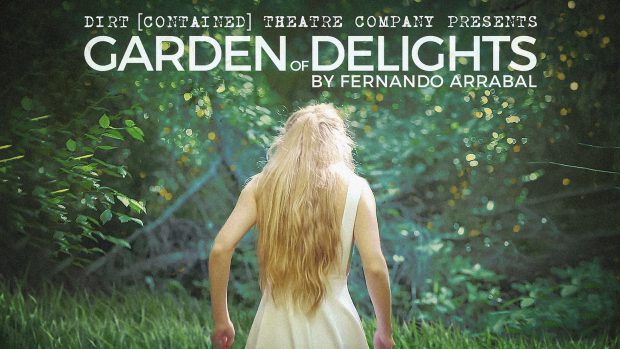
“El jardín de las delicias” de Fernando Arrabal (dirección de Maria Swisher).
La escena de Nueva York cuenta desde el viernes 29 de julio con la inesperada propuesta en inglés de la obra “El Jardín de las delicias” de Fernando Arrabal, bajo la dirección de Maria Swisher.
Cuando la noche del viernes en el teatro The Plaxall se vivió el estreno los espectadores parecieron “conmocionados por tan singular experiencia teatral”. Una obra que trata de las relaciones “de la mujer con la mujer precisamente hoy y ahora”.
Y sin embargo la obra fue escrita hace medio siglo, durante la estancia de Arrabal en la cárcel madrileña de Carabanchel . “El Jardín de las delicias” explora la practica del amor a través del viaje fantástico, a lo Jerónimo El Bosco, de sus dos protagonistas.
En la obra asistimos a las juegos paradisiacos e infernales de las dos protagonistas. Con la fantasía de lo poéticamente fenomenal.
La obra encuentra inspiración en el tríptico de El Bosco. A pesar de haber sido representada a menudo internacionalmente no se estrenó en España hasta el año 2011.
El polifacético poeta y cineasta acudió como espectador a la función del estreno el viernes. El colectivo Artistas de la City (LIC-A por sus siglas en inglés) ha preparado una muestra temática sobre la producción del espectáculo, que se exhibe en el mismo espacio. Fernando Arrabal (Melilla, 1932), es un poeta y artista incombustible. Se hospeda en la habitación de un céntrico hotel neoyorquino . A sus pies Times Square y la manos gigantes de una poeta “colosal como el deslumbramiento”. A punto de cumplir los 85 años, Arrabal afirma: « Fueron realmente maravillosos esas mujeres y hombres, esos titanes, que eligieron el destierro y que colaboraron con el surrealismo o con dada o con la patafísica para hacer un mundo diferente ¿y mejor?».
Arrabal regresa a Nueva York después de la crisis cardiovascular de 2013. Y ahora, como siempre, recorre las calles y avenidas de la gran ciudad “a lo loco”, a lo espontaneo, a lo súbito. Luce una camiseta con su imagen inserta en un cuadro de Courbet. (“El origen del mundo”). Hasta 2013 Arrabal viajaba todos los años a Nueva York. En 1959 llegó por primera vez becado por la Fundación Ford como una de las seis jóvenes promesas de la literatura europea con Tomlinson, Hugo Claus, Gunter Gras o Italo Calvino.
La extensa y prolífica trayectoria profesional del porta surrealista, patafísico y más tarde fundador del Teatro Pánico, lo convierte en una figura clave de la historia cultural del siglo XX. Pero Arrabal rehúsa medirse con Duchamp, Dalí, Breton, Tzara, Warhol, Beckett y todos aquellos grandes artistas con los que compartió amistad y espacio creativo. «Ellos pensaron que probablemente que la posteridad no hablaría de sus obras. En mi modesto caso ¿solo se referirán Milenarismo?».
“El trama del “Jardín de las delicias” es embrujador. Hay diferentes grados en él, diversos galaxias o paraísos. Si el arte de la poesía es la ambigüedad elevada al nivel de sueños o pesadillas – y, dicho sea de paso, este es el caso- entonces esta obra ¿es la más poética que se pueda imaginar”.
El lenguaje flota, salta y centellea. La obra ha sido traducido por Helen Gary: con toda evidencia ha hecho un excelente trabajo. Hay una deslumbrante locura de palabras cruzando lo etéreo : como estrellas de diamantes.
La pieza como una confrontación se desarrolla en un edén/infierno. Los conflictos y el amor son los símbolos de la condición humana a su nivel creador. “O, quizá el modo en que todos, nosotros somos nuestro propio mensaje. Nos decimos que en todos nosotros hay una Lais alguien que necesita construir y controlar. Y una mujer que necesita destruir .”
Tan poliédrico como enigmático, el universo arrabalesco es un mundo dominado por la poesía, el juego, la representación . Se esquiva a la hora de tener que responder a la pregunta de saber quién hay detrás del escritor . “Aún hoy mis colegas vienen a verme como si yo fuera solo el hijo de mi padre. Muchos cuando me rinden homenaje en realidad honran al condenado a muerte”.
Poeta y apasionado de ajedrez defiende la buena salud de la creación mundial y obviamente de la española. “Muchos dicen lo mismo que Quevedo: ‘Miré los muros de la patria mía’. Y solo ven excrementos , destrucción y desencantos.” Pero quizás todos como Quevedo no quieren comprobar que viven codo con codo con Cervantes, Tirso, Lope o Góngora”.
“Nadie ha ido tan lejos (según mi experiencia) ni ningún otro dramaturgo ha logrado antes presentar este cataclismo trepidante y ordenado en las tablas. Este meteórico instante. Con la gracia de lo fantástico y la corteza de lo real”.
Sobre lo que aún le queda por decir y hacer como artista, Fernando Arrabal afirma: “Tengo la impresión de que no me queda tiempo, de realizar lo mucho de lo que aun me queda por hacer. Pues solo soy un hacedor”. Lo que deseo es que, aquí y ahora,“El Jardín de las delicias” : “siga siendo una fiesta sáfica, surrealista, patafísica, pánica y dadaísta en el corazón de la Gran Manzana”.
Bajo la dirección de Maria Shiver la obra esta protagonizada por Tana Sirois (Lais), Maria Shiver (Miharca), Olivier Rinaud y Adam Giannonne.
Personajes que fueron creados hace medio siglo en el Théâtre Antoine de París por Delphine Seyring, Marpessa Dawn , Berard Fresson et Jean-Claude Druot.
